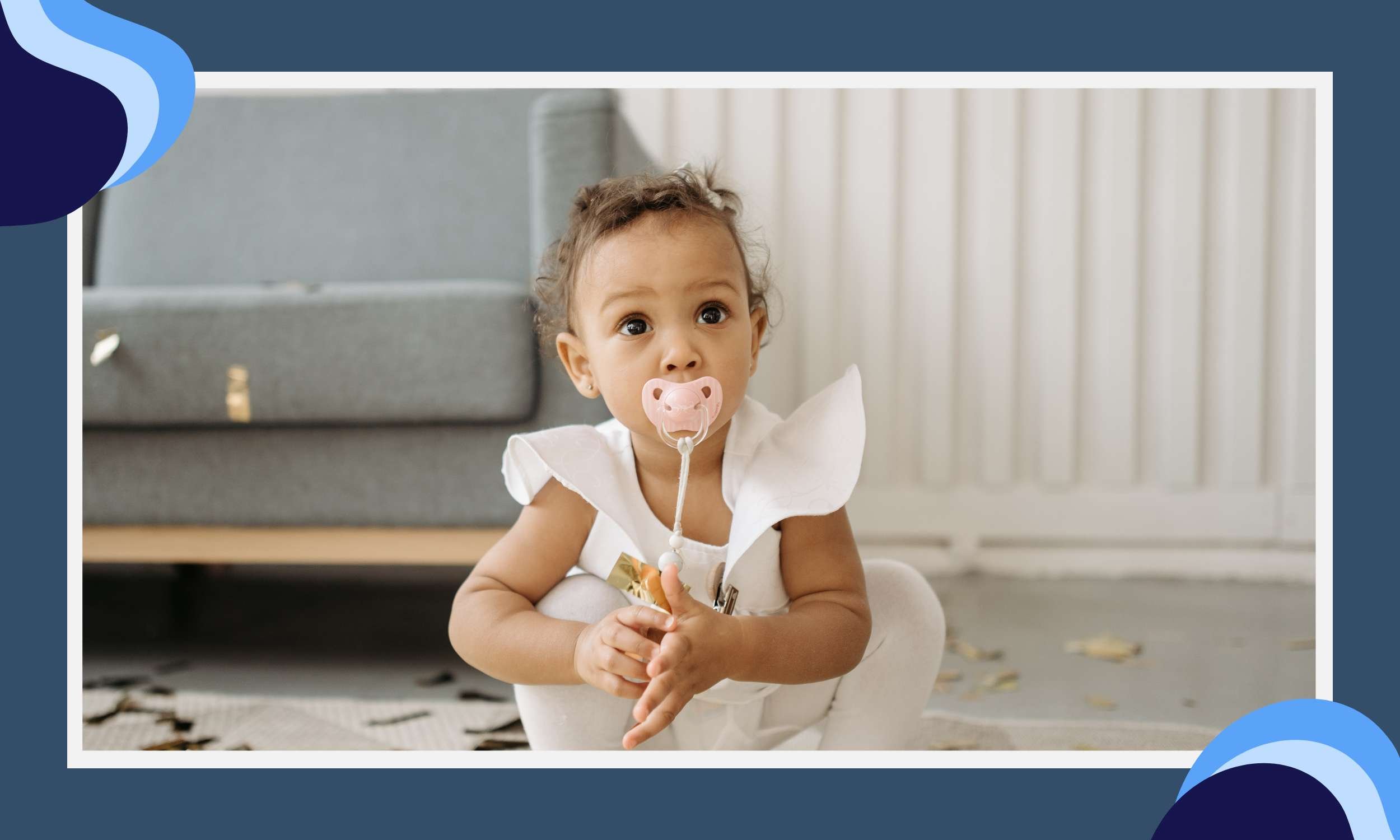If you’re like most parents, you’ve probably had a love-hate relationship with pacifiers. They’re amazing when your baby is fussy at 2 AM and nothing else works, but then you start wondering, “Is this little piece of silicone going to affect my child’s teeth?”
But pacifiers aren't all good or all bad. It really comes down to timing and knowing what signs to watch for.
Why Babies are So Attached to Pacifiers
Babies are born with a natural sucking reflex that’s about way more than just feeding. It’s their way of feeling safe and calm.
That’s why pacifiers work so well. They satisfy that natural urge and help babies self-soothe.
When your little one is crying and that pacifier instantly calms them down, it’s actually releasing feel-good hormones called endorphins. For premature babies, sucking can even help with their development and make medical procedures less stressful.
Understanding the Dental Concerns of Pacifiers
Pacifiers are awesome for little babies, but using them for too long can start to affect how teeth and jaws develop. Think about it like this: if you hold your mouth in the same position for months and months, things are going to shift.
Open Bite Situation
This is probably the most common issue we see. When kids use pacifiers for extended periods, their front teeth start to grow around the pacifier shape. So instead of the top and bottom teeth meeting like they should, there’s a gap. It’s like the teeth “remember” the pacifier being there.
Pushing Teeth Out of Line
Pacifiers can also push the top front teeth forward and the bottom teeth backward. This creates what we call an overbite, and it's not just about how it looks. It can actually make it harder for kids to chew properly.
Narrowing of the Upper Jaw
All that sucking can actually make the upper jaw narrower. This can lead to the back teeth not lining up right, which we call a crossbite.
Impact on Speech Development
Prolonged pacifier use can also affect how kids learn to talk. Their tongue gets used to working around the pacifier, which might influence how they form certain sounds.
When Should You Start Saying Goodbye to Pacifiers?
Most pediatric dentists recommend starting to wean your child off the pacifier somewhere between 12 to 18 months. By then, that intense need to suck starts to fade naturally, and kids begin finding other ways to soothe themselves.
The goal is to have the pacifier completely gone by age 3. That might sound tough if your toddler is still really attached, but the earlier you start, the easier it usually is.
It also depends on how much your child uses it. A kid who only wants their pacifier at bedtime is likely to have fewer issues than one who carries it around all day.
Tips for a Smooth Transition
Take it Slow
You don’t have to go cold turkey. Start by limiting when the pacifier comes out. Maybe it’s only for naps and bedtime at first. Baby steps are still steps.
Find New Comforting Objects
Help your child find other things that make them feel safe and cozy. A special stuffed animal, a soft blanket, or even a sippy cup with water can sometimes do the trick.
Get Creative with the “Goodbye”
Some families have great success with making it special. Ever heard of the “pacifier fairy?” Just like the tooth fairy, but she comes to collect pacifiers and leaves something fun behind.
Stick to Your Plan
This one’s tough, but consistency matters. If you decide to cut out pacifier use during the day, don’t give in during a grocery store meltdown!
Figure Out the Why
Pay attention to when your child reaches for the pacifier. Are they tired? Bored? Once you know the trigger, you can help them find other ways to handle those feelings.
Bedtime Might Be the Hardest
Don’t be surprised if bedtime is the most challenging. Try adding extra comfort to their bedtime routine, maybe an extra story, some soft music, or a few more cuddles.
When to Give Us a Call
Your child should have their first dental visit by age 1 or within six months of getting their first tooth. During these visits, we can monitor how things are developing and give you personalized advice about pacifier use.
Don’t wait if you notice:
Changes in how the teeth line up
Trouble with speech after age 2
Your child is over 3 years old and still using a pacifier regularly
Teeth looking crowded or spaced out
Any concerns about how their jaw or face is developing
The sooner we catch these issues, the easier they usually are to fix.
Read also: The Benefits of Taking Your Child to a Pediatric Dentist
The Bottom Line
Pacifiers can be really helpful during those first few months, but like most parenting decisions, it’s all about balance. You want to comfort your little one while also protecting their developing smile.
Keep in mind that every child is different. Some just lose interest on their own, while others need a little extra help letting go.
If you have concerns about your child’s pacifier use or notice any changes in their teeth, don’t stress about it alone.
The pediatric dental specialists in New Iberia and Lafayette, LA, at Pelican Pediatric Dentistry are here to help you navigate this. Give us a call today to schedule a consultation and get personalized advice for your family’s unique situation.

